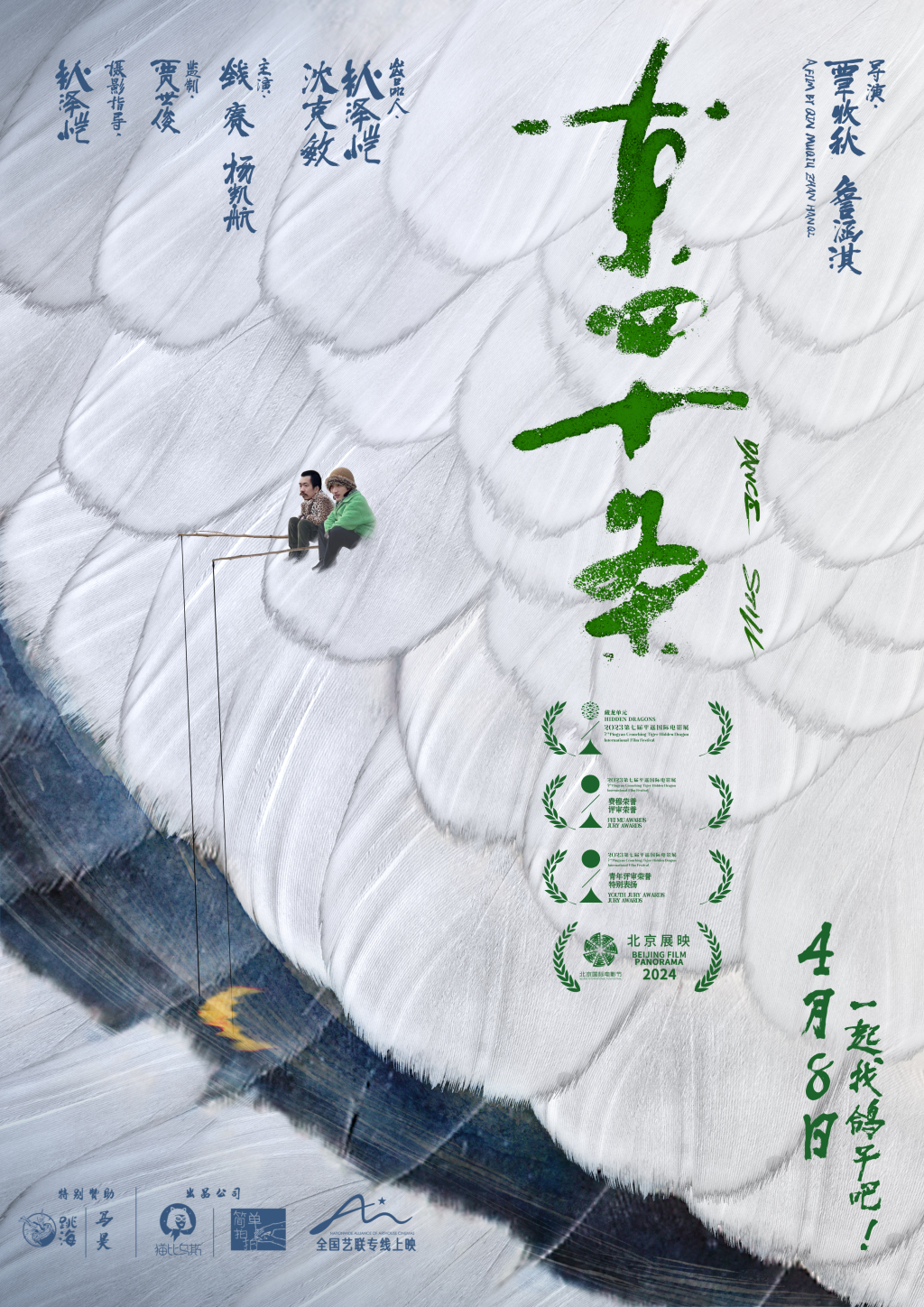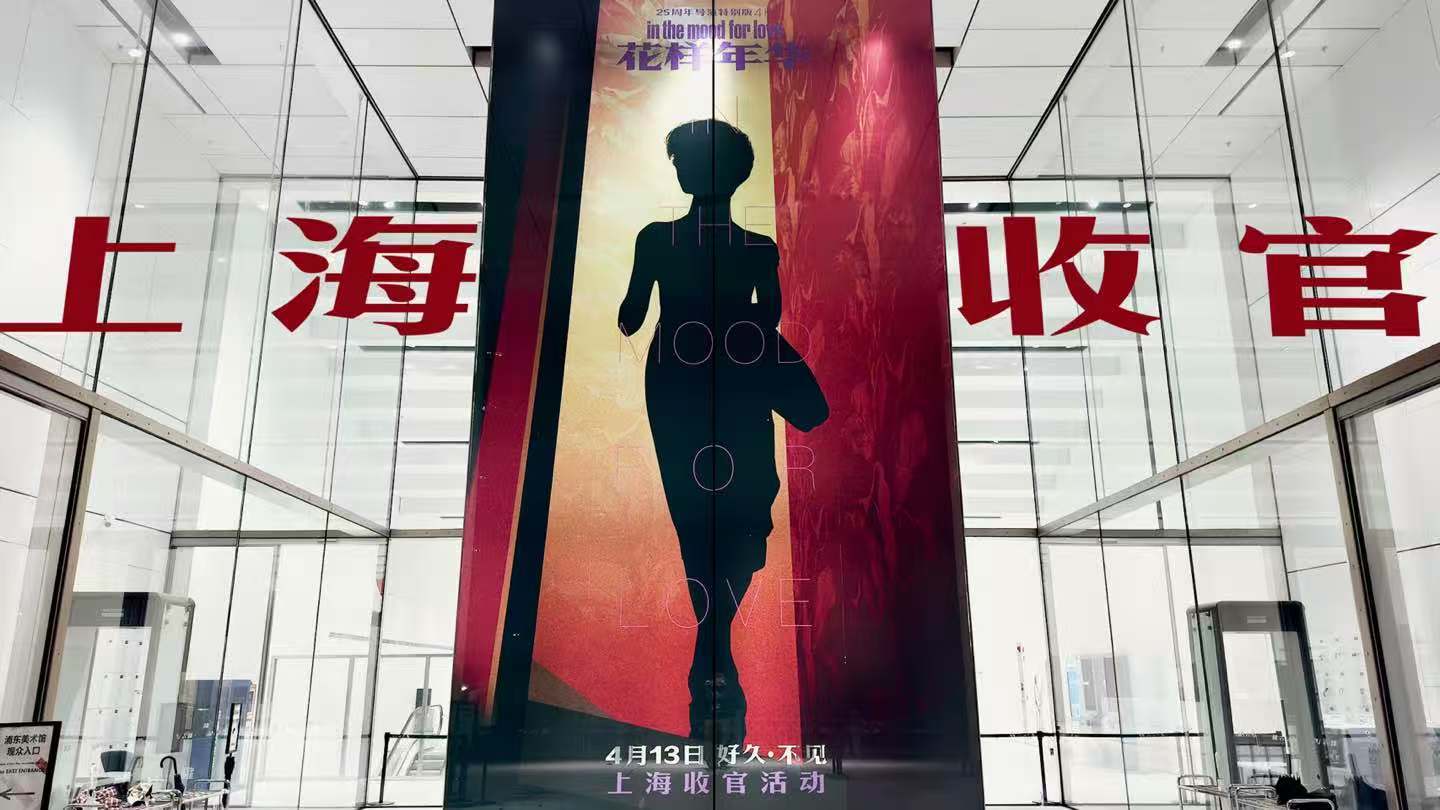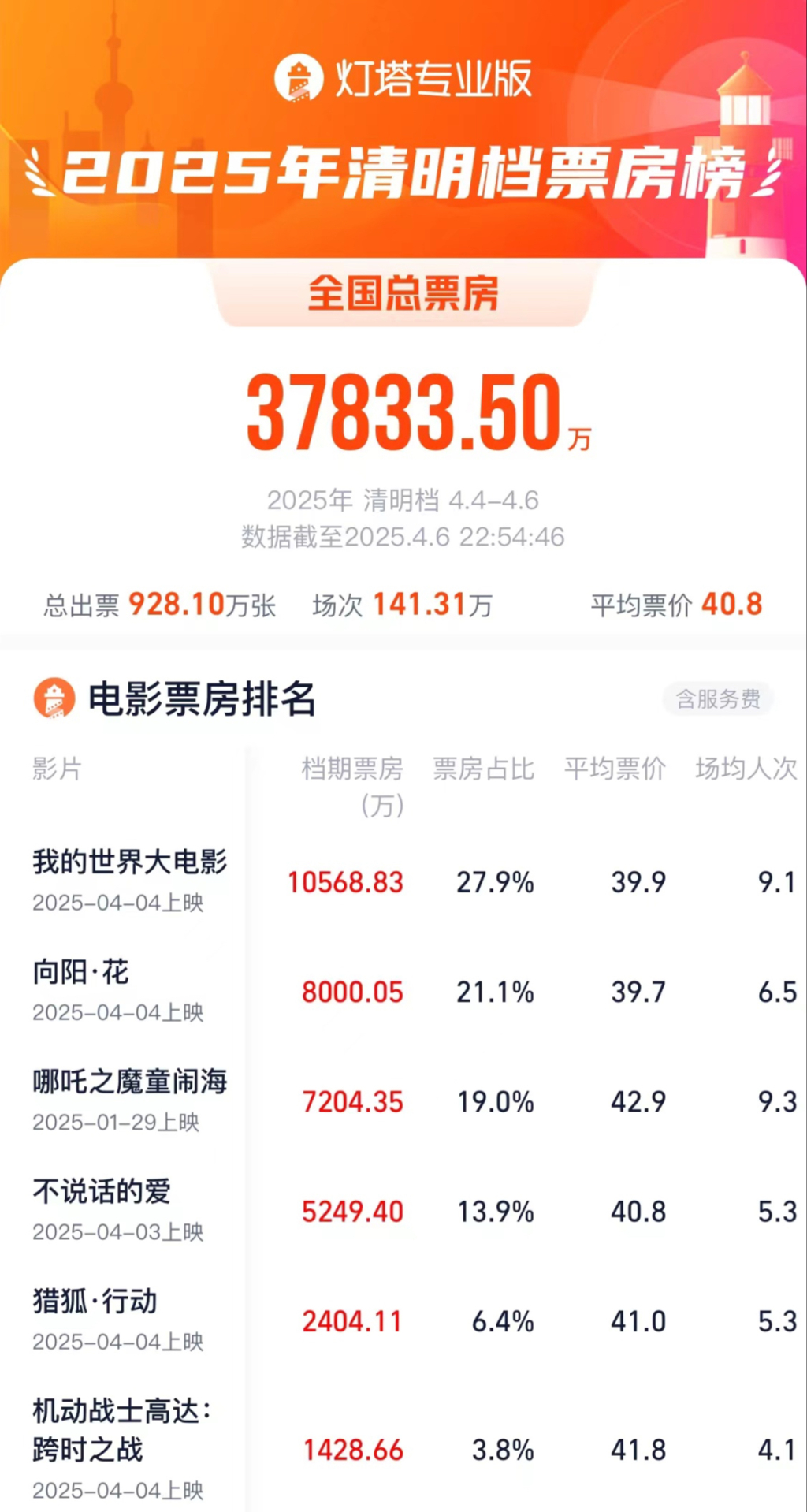
"Dongsishitiao" is a place name in Beijing, and also the name of the two protagonists of the movie "Dongsishitiao" which was released on April 8.

Poster of "Eastern Forty Articles"
Dongsi (played by Yang Kaihang) and Shitiao (played by Qian Geng) are two young outsiders who rent in a Beijing hutong. They have nothing to do, but accidentally see a "pigeon search notice" in the hutong with a large reward, which starts their journey of searching for pigeons that has lasted for four seasons but has nothing to show for it.
There is a line in the movie that says, "People in the Drum Tower have a few years more youth than others." The two directors of the film, A Mao (Qin Muqiu) and Da Dou (Zhan Hanqi), are two of them who linger there. The "Drum Tower" also goes far beyond the geographical limitations of Beijing, like a spiritual coordinate that every big city has.

Drum Tower, an important landmark in "Eastern Forty Articles"
As for this movie, it originated from the two directors' "rebellion" against their own sense of emptiness during the period of stagnation caused by the epidemic. They found friends who had never been involved in the film industry to form a "grassroots team". Everyone took on multiple roles and filmed it intermittently for a year with the mentality of playing a game. The process was so relaxed that the protagonists never realized that they were acting in a movie.
As a result, this work became a "hit" at the 7th Pingyao International Film Festival in 2023, winning cheers, laughter and applause in the theater, and finally won the "Fei Mu Honor·Jury Honor" and "Youth Jury Honor·Special Praise".
The absurd and everyday Beijing Hutong City Walk is accompanied by the two people's irrelevant Prattling talk, and the relaxed but somewhat heartbreaking record of contemporary youth's survival is vividly presented on the screen. The outer layer of the film is absurd sugar coating, and the core is the mood of the times. The two directors described "East 40 Articles" as a "chewing gum movie" and said that "if you chew it more, you will taste different flavors."

Movie poster of "Eastern 40 Articles"
If you are stuck, go find a pigeon.
In the summer of 2021, A Mao and Da Dou, who lived near the Drum Tower, met by chance in an alley in Dongsi. The two ate popsicles and chatted, and happened to see a missing bird notice posted in the alley - a lost parrot with a reward of 5,000 yuan.
This made the two of them feel a little funny. "Looking for a bird is too illusory, isn't it?" After laughing, they sighed a little, "Many times, the life we pursue is also very illusory in the eyes of others."

The starting point of the movie is this bird-hunting notice
At that stage, the whole world was "stuck" in an abnormal order, and Dou Da and A Mao were inevitably a little anxious. So they jokingly said, why not make a movie about two people looking for a bounty pigeon in an alley for a whole year.
This process is presented like a hutong version of "Waiting for Godot". The two male protagonists walk through the hutongs, sometimes looking at the sky on the grass, and sometimes sitting in front of the public toilet in a daze. The chat is full of the strange ideas of literary youths, and they talk nonsense in a serious manner.
As for where the pigeon is, there is no answer, just like whether Godot will come tomorrow. That kind of "boredom" is just like the creator's perception of life.

"Dongsi" and "Ten Articles"
"At that time, we felt that our lives needed something to stimulate us." The process of making the movie was like the two directors themselves "looking for pigeons." The filming started after only one-tenth of the script was written. The core idea was to look for pigeons. As for the specific process and who we would meet, we explored it little by little with friends over the next year.

The two directors, Dou Da (left) and A Mao (right)
Many inspirations came from drinking parties, but the lines that seem to be very casual and everyday have actually been carefully polished. "We first wrote a version, then invited two or three playful neighbors to have a drink on the roadside, read the script while drinking, and pushed it down sentence by sentence. According to their way of speaking, we changed it into a funnier version, and then let the actors rehearse." This is how Dou Dou introduced the script writing process.
The two are no strangers to video creation. They have been working in the advertising industry for many years and call themselves "video third party". Although they both shoot things, A Mao feels that filming is "logically very different". This makes them always wary of becoming "self-entertaining creators". Da Dou said that since the stage of polishing the script, they have widely sought negative opinions from friends around them, "If they think there are too many emotional or self-expressive things, we will decisively remove them."
Many of their colleagues who work as advertising directors have the dream of making a movie one day. A Mao and Da Dou even find it "a bit hard to understand" - "He wants to do this thing first, and then finds the desire to express it. For us, we want to express something very much. When we think of this thing, if we want to present it through pictures, it should be a movie." The movie is not the purpose, but a carrier of the desire to express, "It's no different from writing a poem or a song."
Gulou Community Movie
Like the characters in the movies, Ah Mao often stares blankly and talks nonsense. His friends all find his jokes funny. But once he said the same thing to someone in another circle, he found that his jokes were not popular.
In Gulou, there is a strange tacit understanding between a group of people, and many strange and overly interesting people are put into this movie. The people involved in the movie are more or less qualified to be labeled as "literary youth", which is different from the stereotype of traditional literary youth.
Friends who come to help don’t want to be paid, are bored enough, and don’t understand the “market situation”. Da Dou also found an interesting common point - “He doesn’t care what role you play, or what you are shooting.” For example, the protagonist Qian Geng readily accepted the invitation. “He didn’t have a process of screening, judging, and considering whether to do it.” Just like when you go to school and ask your friends to go out on Saturday, “your friends will directly agree to it and won’t ask you where you are going.”

"Using local materials" work photos
Later, there was a kite-flying scene, and Mao remembered a friend who once said he was good at flying kites, but he was an office worker and hesitated about the invitation. "They would ask you questions like what the film is about and what you used to do. But I couldn't answer these questions at the time. I just simply asked him because he said he was good at flying kites."
This made A Mao certain that the people in Gulou were indeed different.

Friends came to help make a movie
Since the film was shown at the Pingyao Film Festival, the two directors have called it a "Gulou community film" - "It was shot by a group of neighbors living in Gulou, the main creative staff are all neighbors, and all the staff were recruited from the neighbors." The Gulou here is not the physical area of Beijing's East Second Ring Road, but more like an ideal time and space, "Many young people who don't want to live by the rules live here for a period of time, forming a community."
Dou Da and Amao have both lived in hutongs for more than 10 years. Most of the scenes in the movie are places where the creators would walk through every day. "It's very cheap to go out, there are no sounds from upstairs and downstairs, and no cars can get in. It's very quiet in the city." Here, old Beijingers, young people who have moved to Beijing, and tourists meet in the same physical space and time, but they seem to have their own boundaries.
The shots in the movie are very conventional. Due to the limited equipment, only the most basic audio-visual language can be used to complete the narrative. The retro 4:3 frame was also specially designed by the director to "hide his shortcomings". "On the one hand, the hutong is narrow, and the 4:3 frame can leave some room on both sides to avoid a lot of dirty and messy things, and it is also convenient to correct the picture through cropping in the later stage." Because there is no clear-scene shooting, "there are many accidental things in the film, and many people who come and go are residents of the hutong. We kept them in the movie."

The whole film practices "Hutong aesthetics"
A Mao joked, "The crew as a whole can be summed up in one word: poor, and a kind of manual wisdom is reflected everywhere."
The final cost of the film was only 200,000 yuan, which was a very inspiring legend at the Pingyao Film Festival that year. In fact, most of the money was spent on post-production. At the end of the shooting stage, when A Mao made the rough cut, they only spent 60,000 yuan.
"We didn't think that we had to have a lot of money to make a movie. Maybe it's because we didn't have the chance to experience what it was like to make a movie with money." Da Dou recalled that this was a natural process. "We had no idea how much money it would cost to make a movie. We just imagined what we wanted it to look like. Once we had enough money to shoot, we set off."
In a photo that recorded the working status of the crew at that time, Dou Da and A Mao placed their tripods and other filming equipment on the back seat of a shared bicycle before switching scenes. A friend photoshopped their photo and annotated it as "director, producer, makeup artist, costume designer, stagehand, and driver..."

The crew members who have multiple roles
When attending the Pingyao Film Festival, Doudao made the magical discovery that the end credits staff of other films were divided into "groups", "such as the production group, director group, art group, and lighting group. We are a group, or even several groups." In order to make the behind-the-scenes lineup look more impressive, they even added the names of small animals.
Just like the dialogue between Dong Si and Shi Tiao in the movie always inadvertently dispels many meanings, Dou Da and A Mao also practice a certain disenchantment of the sublime. "We never thought that film was particularly difficult or had any great 'halo'. When we were in school, we learned art theory and image analysis, but if you say this thing is 'sacred', it has never been. 'Director' is just an identity that is generated when working on the set."
After filming the movie, the previous "stuck" state did get some relief. "After doing this, we felt a sense of healing." Da Dou remembered that Qian Geng, the actor who played Shi Tiao, suddenly shed tears to the sky while fiddling with balloons on the grass during filming one day. He said that at that moment he suddenly felt like he had "recovered his life." "It's the same for everyone. By doing these things, it seems that we have found a concrete way to establish a relationship with life."

Qian Geng, the actor who played Shi Tiao
Green Humor
In fact, "Eastern Forty Articles" is a record of the spiritual wanderings of contemporary young people in a foreign land. Different from the stereotypes of similar themes in the past, the new generation of creators have given different observations and expressions.
Da Dou, who comes from a small county, recalled his life before coming to Beijing, "Materially, I was OK, not stressed, but psychologically, I felt very hard." On the contrary, after coming to Beijing, "I may be poor materially, but I have a real sense of freedom and abundance."
In the traditional narrative of drifting to Beijing, outsiders always have a sense of loneliness and hardship of trying their best to stay or blend in. However, Dou Da and Amao, who live in Gulou, have a different feeling here: "I have never felt that it was very hard in Beijing, and I have never had the obsession of trying desperately to stay or not being able to stay, or having to stay to prove something. I have always felt that I am very happy."
A Mao is from Guangxi. When he was growing up, the phrase he heard most often was that so-and-so went to Guangdong to work. "It seems that the only way out for people from Guangxi is to work in Guangdong. Everyone wants to go to Guangzhou or Shenzhen, and then stay. You must have a dream, you must endure hardships, and finally produce something, which is the ending." A Mao thinks that was a thing of the past era. The status of the characters in this film "can still represent the different status of some people today. It's okay to go or not to go. What's important is your experience of life, not necessarily any results."
In today's fashionable terms, Dongsi and Shitiao can be regarded as a kind of City Walk partner, where people chatter all the time, but what they say is somewhat irrelevant. The unique dialogue style of "reading and replying randomly" is an attempt to achieve a kind of effect of talking at cross purposes in the creation.
In Dou's opinion, "Deep down in their hearts, they are quite in sync. Although they don't understand each other's words, they have a deep sense of companionship. Dongsi always feels that he doesn't understand what Shitiao says, but he is always happy for him. Whenever he meets a passerby, he will proudly tell them, 'My friend is an artist, and he is going to Berlin soon.' I think this kind of support is more important than superficial mutual understanding."

Dongsi always accompanies and supports Shijiao
Modern people are afraid of loneliness and trouble, so they have developed "partners" to suit various scenarios. But in Gulou, this culture seems to be different. "We have another contrast here. We don't seem to care much about our friends' lives, but usually care more about each other's spiritual world." A friend from Shenzhen once asked Da Dou why he didn't pay attention to their mutual friend's marriage. "I suddenly realized that I really don't think her marriage has anything to do with me, but if she has an ideal now, this is very important to me. I might talk to her for a long time and then say, I support you!"
In life, friends from Gulou come and go. Doudou recalls his own circle of friends, and finds that there is a 20% turnover rate every year. Although it is inevitable to feel sad every time you say goodbye, it seems to have become quite accustomed to it because it is so common. Moreover, A Mao now has a specific time every year to go to different places to stay with friends who have left.
Doudou once read an article about Gulou. "Looking at this group of people from an external perspective is like walking through a club, pushing open the door and looking inside, and then writing an article to describe these people to others. I don't like that feeling at all."
As people born in the 1980s who "wasted their youth" in Gulou, Doudou and Amao's "social clock" seems to be a little off. "Youth was prolonged by Gulou, and my thinking seems to be a little behind my peers." This "lag" brought some confusion, but also reached a certain self-consistency. "It is we who need to find the pigeons, and it is also we who are stuck in life." Doudou said, "We are not looking for a group of people from the outside to observe and interpret them. The reason why we made this movie is because we are in it, seeking to understand and think about ourselves, and explore solutions."

Stills from "Eastern Forty Articles"
After the filming, they couldn't give any life advice to "stuck people". "To be honest, we are still stuck ourselves. This situation is too common." In A Mao's opinion, people around him are more or less "stuck" - some people have a smooth career and are financially well-off, but have not found someone they like after more than a dozen blind dates; some people have failed to pass the postgraduate entrance examination many times, and some people change jobs frequently and can't find a career they like; some people have no worries about food and clothing in their hometown, but still feel confused about life and have no interest in anything. "Everyone has their own little "stuck". Maybe now that we have caught up with the times, most people will have some big "stuck". "But what can you do if you are stuck? Da Dou said, go out for a run first, "It can also burn a few hundred calories."
There are many jokes like this in the movie.
This is a movie that can be "funny" to varying degrees. The creators have been carefully polishing every "laugh point" since the script. They decided that the movie's laugh points must be "powerless" and have more meaningless coldness. "These two people are definitely not comedians, and they are not making jokes. People are not amused by their behavior, but by the gap and powerlessness in the language communication."

The abstract plot has a powerful spiritual core.
Before the film was officially released, it had the opportunity to be screened at film festivals in different regions. Most of the audiences laughed as expected. "We laughed at some parts that we didn't think were funny before, and we laughed at parts that we thought were very sad. And the funny points in each city are different." Last year, Dou Dou found with some sadness that when this "Beijing Joke" was screened in Shanghai, the audience laughed more exaggeratedly and enthusiastically. On the contrary, only in Beijing did the audience laugh the least. "Because they are familiar with it, they may take the film more seriously and can appreciate the part of resistance in it, so it is more difficult to relax."
Different audiences may have different chemical reactions to the film. What makes some people who share the same frequency smile may be seen as a "weird award" by others. "They may think we are making a bizarre film, but in fact we want to show the exact opposite." Dou Dou said, "Some codes seem to separate me from some people and bring me together with others."

Stills from "Eastern Forty Articles"
They invented a term called "green humor". "The familiar 'black humor' has some sarcastic and sharp parts, but green humor is harmless to humans and animals. There is no sarcasm. We don't want to make fun of ourselves. We don't want to give you something spicy or bitter, just like chewing gum. It is not sweet at the beginning. Maybe you can relax and feel good when you chew it at first, but you can also feel it seriously while chewing. It may have a different taste." A Mao said.


